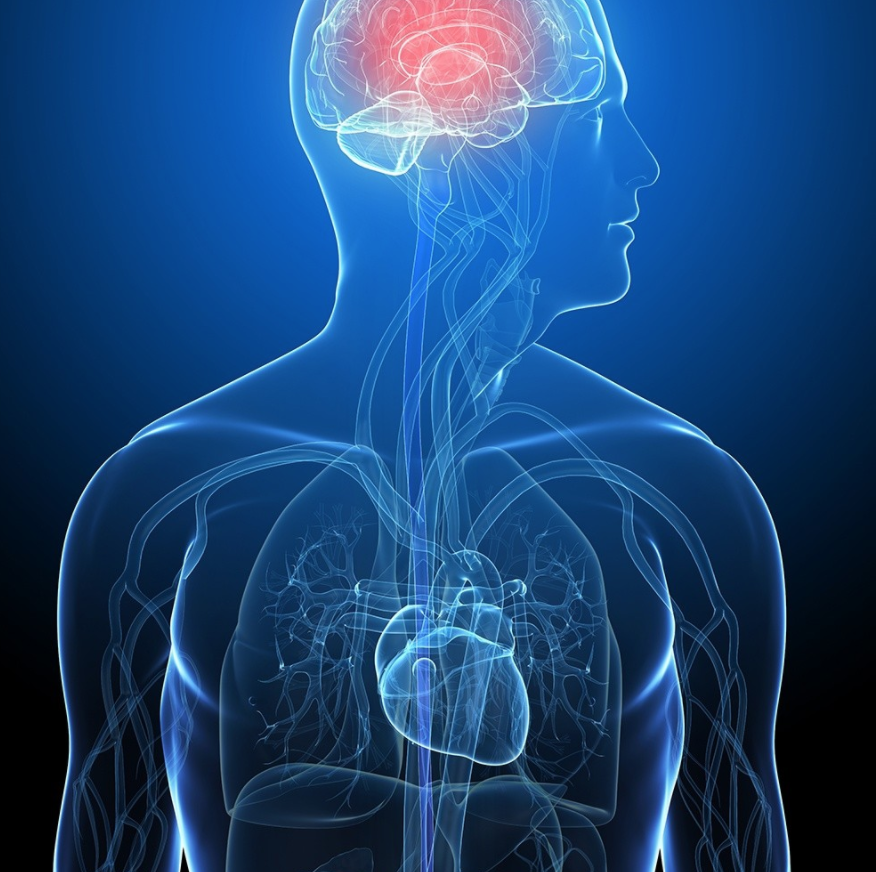- PATIENT FORMS | REQUEST A CONSULTATION | CONTACT US
- 1-844-NSPC-DOC
Astrocytoma
What Is Astrocytoma?
Take ActionAn astrocytoma develops from the star-shaped astrocytes of the brain. Astro originates from the Greek word for star, cyto means cells, and the suffix -oma means tumor or growth. Astrocytes, oligodendrocytes and ependymal are categorized as glial cells; tumors stemming from these cells are categorized as gliomas. Astrocytes interface with blood vessels and neurons and assist with regulating neural functioning.
Astrocytoma Symptoms
Children with astrocytoma usually have low-grade tumors, considered slow growing; adults often have a faster-growing, high-grade form of astrocytoma.
Symptoms of astrocytoma may occur due to the pressure the astrocytoma puts on the surrounding healthy brain tissue:
- Seizures
- Headaches
- Vomiting
- Vision issues (not corrected by glasses or contacts)
- Gait difficulty due to coordination and balance problems
- Loss of memory
- Personality change
It can be hard to diagnose acoustic neuroma; ear exams and hearing tests may not show if you have it because acoustic neuroma symptoms are similar to those of middle ear problems.

Astrocytoma Diagnosis
At NSPC Brain & Spine Surgery (NSPC) (NSPC), our dedicated physicians used the most scientifically advanced equipment to diagnose and treat astrocytoma and other cancers of the central nervous system.
To diagnose brain conditions, a complete neurological evaluation will be completed to assess your memory, balance, vision, hearing, reflexes and cognitive functions.
Brain imaging such an MRI provide detailed pictures of your cranium and abnormal cells. To determine how progressive or fast-growing your tumor is, a biopsy will be taken and analyzed by by a neuropathologist.
Astrocytomas are categorized from grade I to IV based on how abnormal the cells are and
how fast they grow.
- Grade I—are generally local (stay in the same area) and do not metastasize (spread). They are the most benign form. Can form cysts (fluid-filled sacs) examples are Pilocytic Astrocytoma, Desmoplastic Infantile Astrocytoma and Cerebellar Astrocytoma.
- Grade II—cells tend to slowly diffuse into the surrounding area, and are considered a Diffuse Astrocytoma. Type of Grade II tumors include Gemistocytic, Protoplasmic AStrocytoma and Fibrillary. These can also can have cysts.
- Grade III—is called Anaplastic Astrocytoma. These are less common tumors. Can reach into neighboring tissues and are considered metastatic and fast-growing.
- Grade IV—Sometimes called Glioblastoma Multiforme, can be either a primary or secondary tumor. This is the most progressive and malignant grade of tumor.
State-of-the-Art Treatments for Astrocytomas at NSPC
At NSPC Brain & Spine Surgery (NSPC) (NSPC), our multi-disciplinary team includes radiation neuro-oncologists, neurophysiologists, neuropsychologists and neurosurgeons who will work together to find you the best treatment plan with the most favorable results. Our premier medical centers are located on Long Island and the New York area, and our award-winning doctors treat the most complex brain conditions with world-class care.
Radiation & Radiosurgery
Radiation is often recommended for higher-grade astrocytomas which often have tentacle-like parts that can reach into surrounding healthy tissue, making complete surgical removal of the cancer nigh impossible. Radiation can be focused on a specific region or on the whole brain.
Revolutionary radiosurgery techniques such as CyberKnife® and Gamma Knife® allow our skilled neuroradiologists to treat many previously inoperable cancers, safely and effectively.
State-of-the-Art Brain Mapping and Surgery
Surgical treatment is often the first type of treatment recommended for astrocytomas, and resection will generally provide functional survival for many years. Pilocytic and low-grade astrocytomas may require surgery to remove the tumor, but with higher-grade tumors, the tentacle-like cells have invaded surrounding tissue, making surgical resection or complete removal of the tumor not possible. But reduction in the mass of the tumor may decrease pressure on the healthy brain tissue—and limit symptoms—along with providing less mass left to be ablated with radiation and chemotherapy.
Depending on where the tumor is located, obtaining a useful biopsy may also require surgery.
Expert neurosurgeons use complex and technologically advanced intraoperative brain mapping to prepare for and to guide surgery. Functional MRI (fMRI) scans
assist your surgeon in determining the working parts of your brain that the tumor affects. The fMRI along with neuropsychological exams will construct a chart of your brain to guide the surgical process.
Chemotherapy
Chemotherapy is often supported after surgery and radiation are completed. NSPC stays at the leading edge of cancer treatments, for example, participating in clinical trials to offer the latest possible cancer treatments.
As one of the New York City region’s premier neurosurgical practices, NSPC provides patients with the most advanced treatments of brain and spine diseases with minimally invasive procedures such as aneurysm coiling, neuro-endoscopy, neuromodulation, carotid stents, interventional pain management and stereotactic radiosurgery.

Related NSPC Center
Long Island Brain and Spine Tumor Center
NSPC provides state-of-the-art treatment of benign and malignant brain and spine tumors, using minimally invasive procedures like Gamma Knife®, Novalis TX™, and CyberKnife® rather than major surgery whenever appropriate. Our physicians also perform experienced pediatric neurosurgery — they give personalized, individual attention combined with knowledge and experience to take on the most challenging of cases.
Connect With Our 7 Convenient Locations
across Long Island, NY
Our expert physicians, surgeons and doctors are ready to serve you at our 7 convenient locations across Long Island, NY. Connect today to learn how our award winning, world class experts can help.
4250 Hempstead Turnpike Suite 4,
Bethpage, NY 11714
(516) 605-2720
COMMACK
353 Veterans Memorial Hwy,
Commack, NY 11725
(631) 864-3900
One Hollow Lane, Suite 212
Lake Success, NY 11042
(516) 442-2250
MANHATTAN
215 E. 77th Street Ground Floor
New York, NY 10075
(646) 809-4719
PORT JEFFERSON STATION
1500-8A Route 112,
Port Jefferson Station, NY 11776
(631) 828-3001
100 Merrick Road, Suite 128W
Rockville Centre, NY 11570
(516) 255-9031
WEST ISLIP
500 Montauk Hwy
West Islip, NY 11795
(631) 983-8400
World
Class
Expertise
For over 50 years & 350,000 patients NSPC has been a trusted global medical leader.
Contact us today for an appointment or consultation.
